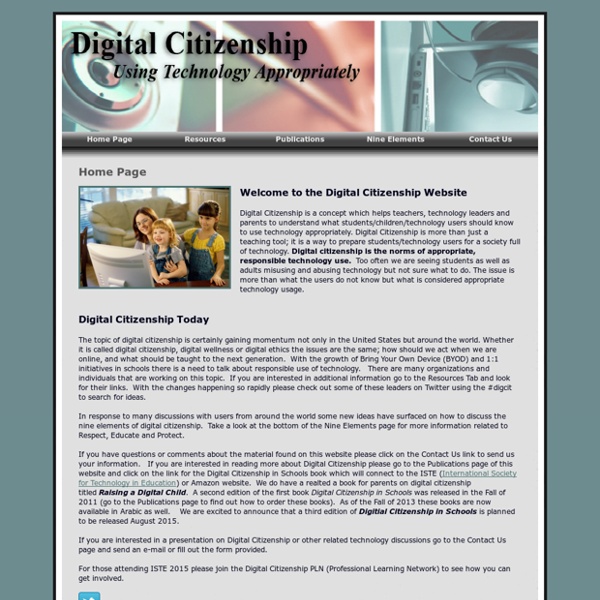Digital Citizenship
Digital Citizenship is a concept which helps teachers, technology leaders and parents to understand what students/children/technology users should know to use technology appropriately. Digital Citizenship is more than just a teaching tool; it is a way to prepare students/technology users for a society full of technology. Digital citizenship is the norms of appropriate, responsible technology use. Too often we are seeing students as well as adults misusing and abusing technology but not sure what to do. The issue is more than what the users do not know but what is considered appropriate technology usage. The topic of digital citizenship is certainly gaining momentum not only in the United States but around the world. In response to many discussions with users from around the world some new ideas have surfaced on how to discuss the nine elements of digital citizenship.
Digital Passport
Scope & Sequence
Get Trained Use our professional development resources to learn best practices for teaching digital citizenship to your students. Onboard Students: Digital Passport Introduce students in grades 3-5 to Digital Passport, our award-winning suite of games that help onboard students to the foundational skills of digital citizenship and Internet safety. Teach Lessons: Unit 1 Teach Lessons: Unit 2 5 - Picture Perfect How can photos be changed on the computer, and how can that affect your feelings about the way you look? Teach Lessons: Unit 3 Extend Learning: Digital Bytes Challenge teens to take a real-world look at digital citizenship through student-directed, media-rich activities in Digital Bytes. Give Assessment Assess your students’ learning of lesson objectives and gauge their understanding and attitudes through interactive unit-level assessments. Engage Families Invite parents into the conversation with our Connecting Families program and resources.
A Must See Visual Featuring The Do's and Don'ts of Digital CItizenship
September 7, 2014 Here is a wonderful infographic I have always shared with teachers during the first back-to-school week. This graphic features 20 of the basic digital citizenship rules. These rules are framed in terms of Do's and Don'ts. You can use it with students to introduce them to the topic of digital citizenship and educate them on the different ways they can properly conduct themselves on the web. As a refresher, digital citizenship is "the norms of appropriate, responsible behaviour with regard to technology use." Check out the full visual from this page.
Related:
Related:



